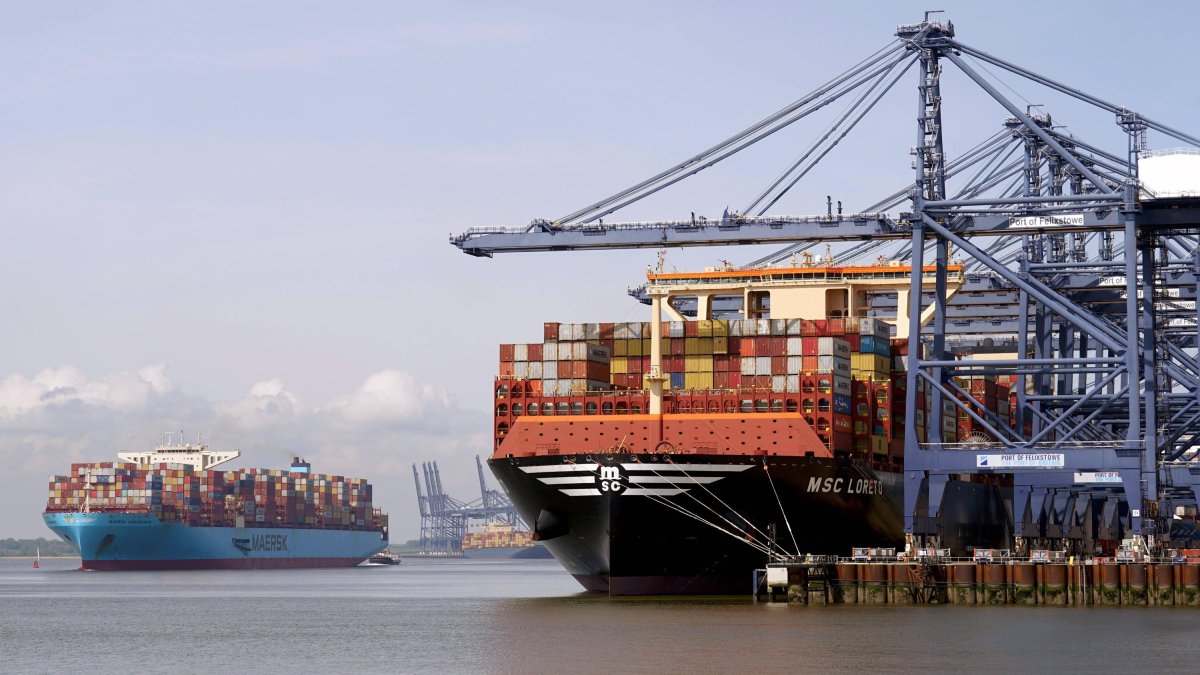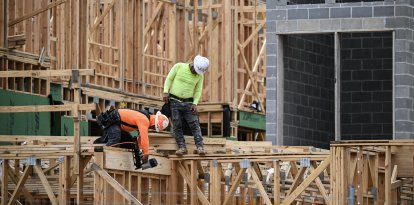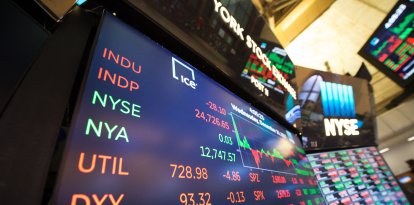TRADE WAR
Trump administration announces new port tariffs on ships built or operated by China
The move comes after the results of an investigation initiated by the Biden administration and, according to U.S. Trade Representative Jamieson Greer, "will begin to reverse Chinese dominance" in the shipping industry.

Several cargo ships in a port
The United States announced new port tariffs Thursday on ships built and operated by China. The move seeks to stop China's dominance in the sector and boost the domestic shipbuilding industry.
Although the move comes amid the escalating trade war between the U.S. and China, it is not a new initiative to put more pressure on Beijing. In reality, it is the fruit of an investigation initiated under the previous administration under Joe Biden that sought measures to curb China's overwhelming shipping power.
Measures to "reverse Chinese dominance, will address supply chain threats"
"Ships and shipping are vital to American economic security and the free flow of commerce," U.S. Trade Representative Jamieson Greer said in a statement.
"The Trump administration’s actions will begin to reverse Chinese dominance, address threats to the U.S. supply chain, and send a demand signal for U.S.-built ships," Greer said.
Per-visit, not per-port fee, and exemptions for shippers ordering ships from the U.S.
Under the new rules, fees will apply on a per-ton or per-container basis, and will be charged for each visit to the United States, not per port at which ships dock. The administration's forecast is that most of the fees will take effect by mid-October.
They will be imposed up to a maximum of five times a year and owners may be exempted if they place an order for an American-built vessel.
95% of ships are built in Asia, half in China
The U.S. shipping industry, dominant after World War II, has gradually declined and now accounts for only 0.1% of world production. Asia now overwhelmingly dominates the industry, with 95% of civilian ships coming to market from China, South Korea and Japan.
However, it is worth noting that China is the biggest player at the moment, as its factories build almost half of the ships that are launched, well ahead of the other two giants of the sector, South Korea and Japan.
Tariffs of $18 per net ton or $120 per container
Greer further specified that there will be separate tariffs for Chinese-operated vessels and those built in China, and both will gradually increase in the following years. For ships assembled in China, the rate starts at $18 per net ton or $120 per container. This means that a ship with 15,000 containers could have to pay a rate of up to $1.8 million.
In addition, all car-carrying vessels that were not manufactured in the United States will also have to pay a fee that will begin to apply within 180 days. The announcement also introduces new surcharges for liquefied natural gas transport vessels, although they will not take effect for three years.
A fact sheet accompanying the announcement says the fees will not cover "Great Lakes or Caribbean shipping, shipping to and from U.S. territories, or bulk commodity exports on ships that arrive in the United States empty."

























